|
 |
Short courses
Short courses related to techniques and methods of plasma spectrochemistry will be given by distinguised experts in the field. Short courses are free of charge for registerd participants of the EWCPS 2015 conference.
| |
| Title of the short course
| 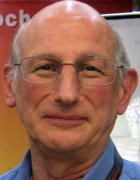
Ramon M. Barnes
University Research Institute for Analytical Chemistry, Hadley, MA, USA
|
|
Fundamentals of ICP Spectrometry
This course will introduce inductively coupled plasma (ICP) atomic emission (AES) and mass (MS) spectrometry for elemental, isotopic, and speciation analysis. The presentations will cover basic ICP instrumentation and measuring concepts, as well as ICP features, capabilities and applications. ICP operation, sample introduction and calibration techniques, and atomic emission and mass spectrometry approaches for elemental, isotopic, and speciation analyses will be discussed.
Sunday, 12:45 -14:45
| 
Philip Doble,
University of Technology, School of Chemistry and Forensic Science, Sydney, Australia
|
| Practical considerations of elemental bio-imaging by laser ablation inductively coupled plasma mass spectrometry
Elemental Bio-imaging employs a high-energy laser beam to vaporise small amounts of tissue, which are transported to an inductively coupled plasma- mass spectrometer (ICP-MS) by an Argon carrier gas. The high temperature and electron-rich environment within the plasma reduces the ablated sample to its constituent elements, which are detected by a quadrupole mass spectrometer. High-resolution elemental maps (6 to 100 per pixel) of trace element distribution throughout the tissue may be constructed by traversing the laser beam across the sample section.
This workshop will detail important practical considerations for accurate and precise image construction. Topics that will be covered include quantification, the choice of internal standard, laser scan and ICP-MS integration parameters, instrument tuning, the use of a reaction cell to remove polyatomic interferences, tagging antibodies with probes for protein imaging, and post-acquisition data reduction.
Sunday, 15:00-17:00
| 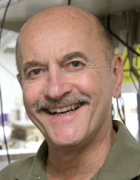
Gary Hieftje,
Department of Chemistry, Indiana University, Bloomington, IN, USA
|
| Glow Discharges
In this short course, an overview will be provided about the characteristics, instrumentation, and applications of glow discharges (GD) in both optical and mass spectrometry. Included will be GDs sustained in various gases, over a range of pressures, and by supplies at either DC or radiofrequencies and in the presence and absence of magnetic fields. Diagnostics of GDs will be considered briefly, and use of GDs for both depth and lateral resolution will be covered.
Sunday, 12:45 -14:45 | 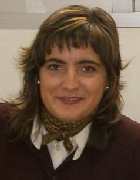
Maria Montes-Bayón,
Department of Physical and Analytical Chemistry, University of Oviedo, Oviedo, Spain
|
| New Applications of ICP-MS in Bioaanalysis
This course will revise the ICP-MS based strategies used for bio-inorganic speciation analysis that can be then adapted to the metallomics studies and will be critically compared with other quantitative possibilities including those based on molecular MS techniques or in immunoassays. Special attention will be given to the quantification methodologies based on the use of generic standards (a unique feature of ICP-MS) and isotope dilution analysis (essential to conduct highly precise and accurate determinations).
Different scenarios will be addressed: when the aim of the metallomic study is to obtain quantitative information just on the presence of a given element/s in a biomolecule or biological fluid and when then information required is the concentration of a specific biomolecule carrying a specific metal/metalloid. The different approaches to tackle these two problems will be highlighted. Finally, some of the actual trends regarding the use of element-tagged results via ICP-MS to extract biologically relevant information such as enzymatic activities, enzymes inhibitors or DNA integrity etc. will be also illustrated.
Sunday, 15:00-17:00
| 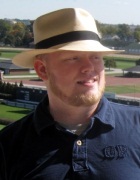
Jacob T. Shelley, Department of Chemistry and Biochemistry;
Kent State University, USA
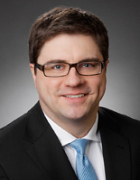
Carsten Engelhard, Analytical Chemistry, University of Siegen, Germany
|
|
Direct Analysis with Ambient Mass Spectrometry
The ultimate goal of analytical chemistry is to provide, what G. E. F. Lundell described as, "the chemical analysis of things as they are" such that a comprehensive assessment of sample constituents is directly obtained in a way that is non- destructive, while the sample is interrogated in its native environment. Recent efforts in mass spectrometry ionization source development have demonstrated these attributes to be possible. In such ambient mass spectrometry experiments, the source desorbs molecules from a surface, softly ionizes them, and transfers these ions into a mass spectrometer. This course will cover fundamental principles of desorption/ ionization processes, as well as applications of these ionization sources. A particular emphasis will be placed on plasma-based systems.
Sunday, 12:45 -14:45
| 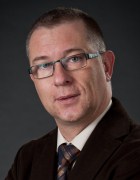
Frank Vanhaecke,
University of Ghent, Belgium
|
| Isotopic analysis using ICP-MS for beginners
In this short course, the capabilities of several types of ICP-MS instrumentation for isotopic analysis will be discussed. The importance of isotope ratio precision will be underlined and hints for optimization of the instrument settings and data acquisition parameters aiming at an optimum isotope ratio precision will be provided. Corrections for detector dead time (pulse counting detectors) and instrumental mass discrimination, required to convert the raw measurement data into "true" isotope ratios, will be discussed. Examples of applications of isotopic analysis will include (i) elemental assay via isotope dilution, (ii) tracer experiments with (a) stable isotope(s), (iii) geochronological dating, (iv) provenance determination and (v) the use of an isotope ratio as a palaeoprox.
Sunday, 15:00-17:00
|
Pre-registration
Due to restricted place within the courses preregistration is necessarry. The courses take place in two blocks Sunday afternoon (12:45-14:45 and 15:00 -17:00). Participants of the EWCPS 2015 can register for maximum two courses (one in each block). Please register for the course by sending us an email with the titel of the course at: info@ewcps2015.org.
|
 |

Dear participants !
We thank you for your participation during the EWCPS 2015.
You
helped to make this event very successful: More than 700 participants
from 45 countries contributed to the success by their poster presentation, oral presentation, exhibition or by the lively
discussion with colleagues.
|



 About Münster
About Münster  Abstract submission
Abstract submission  Accommodation
Accommodation  Coffee/lunch breaks
Coffee/lunch breaks  Conference history
Conference history  Conference newsletter
Conference newsletter  Conference venue
Conference venue  Contact
Contact  Exhibition
Exhibition  General information
General information  How to reach Münster
How to reach Münster  Important dates
Important dates  Invitation
Invitation  Invited speakers
Invited speakers  Local organizers
Local organizers  Oral presentations
Oral presentations  Plasma award
Plasma award  Posters
Posters  Privacy policy
Privacy policy  Proceedings
Proceedings  Public transport
Public transport  Registration
Registration  Scientific committee
Scientific committee  Scientific program
Scientific program  Short courses
Short courses  Social program
Social program  Some numbers
Some numbers  Sponsors
Sponsors  Sponsors events
Sponsors events  Useful links
Useful links  Vendor seminars
Vendor seminars  WLAN/Internet access
WLAN/Internet access 







